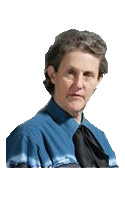
Date: April 9, 2011
Time: 11:00am Pacific Time
Topic: “Effectiveness of Color”
Speaker: Lauren S. Henry
Description: Discover the impact color has on all of us, particularly those diagnosed on the autism spectrum. Colors can often inadvertently impede one’s ability to focus, concentrate, relax and decompress or simply connect in a positive and communicative way – our sensory surroundings have much more bearing over our attitudes and abilities than we realize. You will learn how to discern what colors, shades and hues work best for your child’s specific needs as well your own. You will see how all the other sensory elements such as lighting, texture, scent, sound, spatial surroundings, plants and more can change everything! Creating an environment that works for you is fundamental to one rising to their ultimate potential and achieving their goals much more easily.





